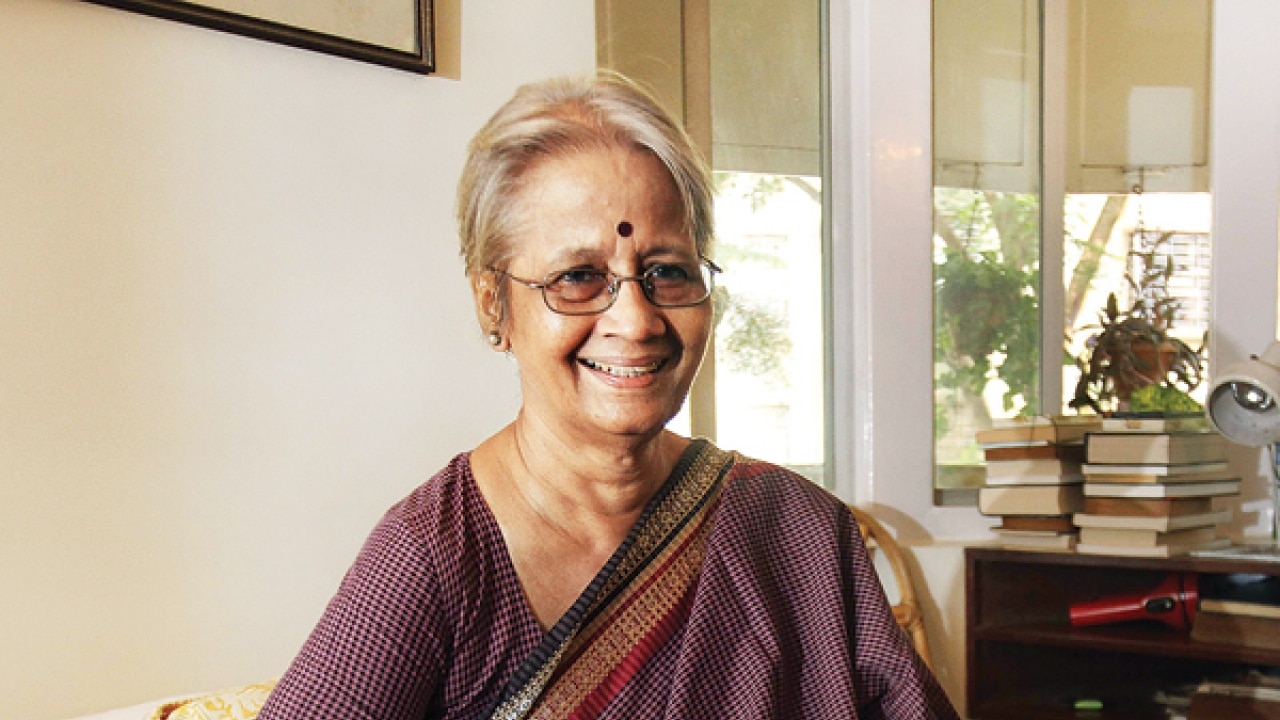
How did The Scenes We Made, which makes for such a fascinating read given its sheer range of information, insights and anecdotes, happen?
Some three years ago, I was speaking at an event in Pune about the importance of documentation in theatre, recording process that led to the product. Ashok Kulkarni, the organiser of the event and a great theatre enthusiast, took up the idea. He brainstormed with Sunil Shanbag. Then the two of them brainstormed with me. Finally, we decided that we could at least record the past history of the city's experimental (off-mainstream) theatre while people who had played important parts in it were still in a position to remember. To give our inquiry a spine so to say, we chose to trace the history of this theatre through three city spaces that had supported it. Journalists who had been writing on theatre interviewed about 30 theatre men and women about those spaces and the activities that took place there.
You say in the preface to the book, 'the new' consciously opposes 'the old' and results in the kind of theatre that forces people to reconsider their definitions of 'good' theatre. Do you see this still happening?
The new is constantly happening. The book's afterword notes the diverse forms of the new that today's theatre people are experimenting with. But there is no established old for them to oppose, as there was in the 1960s when there was an established Marathi commercial theatre that was melodramatic and sentimental and Hindi theatre that was chest-thumping and declamatory.
Many lament the vacuum of ideas and people to drive theatre and ask where are the Ebrahim Alkazis, Vijaya Mehtas, Satyadev Dubeys and Sulabha Deshpandes of today to take theatre forward.
Things are much more scattered now. You don't have a sense of central forces. In Hindi films, there's no Rafi, Kishore and Lata. There are times in history when legends happen. But even today, the work that some directors are doing is inspirational for young entrants to the field.
Would you agree with the complaint by many theatrewallahs who say audience tastes are responsible for the state theatre finds itself in?
It is a fact that the audience plays a very important part in the kind of theatre that gets produced in a community. You have only to look at the huge difference between Gujarati and Marathi mainstream theatre in this one city, Mumbai, to know this is true. That is why directors who have their own strict standards produce consistently good work while those who bend to audience tastes produce uninteresting work.
Unlike the 1960s, today there is the lure of TV soaps, ads and Bollywood which keep plucking away talent from theatre.
That is true and yet there are people who will return to theatre again and again because that's a different challenge. Naseeruddin Shah is the most prominent example of that.
In an era when most successful plays need to have big names from Bollywood or TV, do you feel iconic plays like Band Darwaze, Aadhe Adhure, Hayavadana and Uddhwasta Dharmashala would work today?
It depends on how the plays are treated. Not too long ago, The Industrial Theatre Company produced a very interesting Hayavadana. Lilette Dubey has been running a successful production of Aadhe Adhure. A decade or so ago, a group of young theatre enthusiasts had staged a remarkable version of Band Darwaze. If by asking whether these plays would work today, you mean whether they would draw large audiences, then the answer is no. But even in their own time the audience for plays like these was limited.
Churning has been a constant in the theatre movement from the 1960s as lessons were learned and unlearned, techniques invented and reinvented. Would you agree that economics have seriously limited if not curtailed completely the desire to experiment?
The interviews in the section on Chhabildas speak of the advantages of not having money. Lack of it drove innovation back then. What you don't get unless you have money is slickness. But, as Naseeruddin says in his interview, even after experiencing the lavishness of NSD productions, he still felt there was real theatre in the starkness of Dubey's low budget productions.
Theatre also took pride in being political, even stridently critical of the system, in those times. As political censorship and backlash become the hallmark of our times, do you feel this is still possible?
Censorship existed even then. Three of Tendulkar's most famous plays had trouble with the official censor as well as the street censor. Today, the system has many faces, so the fight against it has become fragmented. But the fight through theatre is still on. Recently Atul Pethe performed a 15-minute silent piece as a protest against the killings of Dabholkar, Pansare and Kalburgi. At the end of the piece, he is bathed in blood. It is on YouTube for all to see.
The book talks of three spaces—Bhulabhai Desai Memorial Institute, Walchand Terrace and Chhabildas School Hall—which provided the necessary impetus for theatre in Mumbai to flourish. Is there a personal favourite among them?
I was personally most closely associated with Chhabildas, so that's the space that makes me nostalgic.
It has been two decades since Rita Welinkar. Are you working on another novel?
I have written a second novel Tya Varshi which I translated for Penguin as Crowfall. I'm working on several projects currently, one of which is a novel.